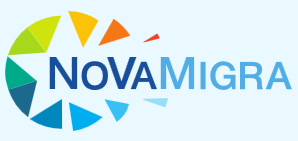Norms and Values in the European Migration and Refugee Crisis : Final Report
From 2014 to 2017, more than three million refugees arrived in Europe. They sought protection from war, violence, persecution and other human rights violations when they arrived in Europe and, in many cases, they also hoped to find a lasting perspective for a new life. Many of these refugees have indeed found reception and protection in the European Union, but some still find themselves in protracted situations, and the EU has since made it much more difficult for refugees to enter its territory. The arrival of refugees has plunged the European Union into a deep crisis: The Dublin system for the distribution of responsibilities concerning migration and asylum within the EU, which had been in place until then, has been suspended, and although the New Pact on Migration and Asylum attempts to initiate a new coordinated approach in this area, there is still no common policy on how to fulfil international, European and national legal obligations towards refugees – not to mention the failure to live up to Europe’s moral and political responsibility to respond adequately to migration and its causes.
In view of this situation and the controversies about how to deal with the major humanitarian challenges the arrival of refugees poses for the European Union, the question arises as to whether the values on which the European Union, according to its self-image, is based, still apply and are shared. The Charter of Fundamental Rights and the Treaty of Lisbon declare the “universal values of the inviolable and inalienable rights of the human person, freedom, democracy, equality and the rule of law” (Lisbon Treaty, Preamble) to be the foundation of the European Union – but can we still say that these values form its common ground? What are the values underlying the political and social responses to refugees coming to Europe? Has the arrival of high numbers of refugees in Europe affected and changed European values? And if so, what does this mean for the future of the European Union and its global role?
These are the questions that the project Norms and Values in the European Migration and Refugee Crisis (NoVaMigra) has addressed. It has developed a precise descriptive and normative understanding of the current crisis of Europe and its values, assessed possible developments of European values and considered Europe’s future in terms of the rights, norms and values that could contribute to overcoming the crisis. In doing so, we have pursued three main objectives: first, to offer a precise and comprehensive understanding of core values or norms in Europe; second, to explain the way values and norms motivate or affect relevant political, administrative and societal agents with regard to migration and the integration of migrants and refugees; and third, to provide a rights-based democratic perspective for the EU and its member states.
This final report of the Horizon 2020 project NoVaMigra brings together its main research findings in an accessible way. It draws conclusions for understanding the political situation in the field of migration and flight and offers recommendations on how the European Union should overcome its internal strife without neglecting its obligations towards refugees.
Vorschau

NoVaMigra
Zitieren
Rechte
Rechteinhaber:
© 2021 Norms and Values in the European Migration and Refugee Crisis (NOVAMIGRA)
Nutzung und Vervielfältigung:
Dieses Werk kann unter einer Creative Commons Namensnennung - Nicht kommerziell - Keine Bearbeitungen 4.0 Lizenz (CC BY-NC-ND 4.0)
Creative Commons Namensnennung - Nicht kommerziell - Keine Bearbeitungen 4.0 Lizenz (CC BY-NC-ND 4.0)
genutzt werden.
